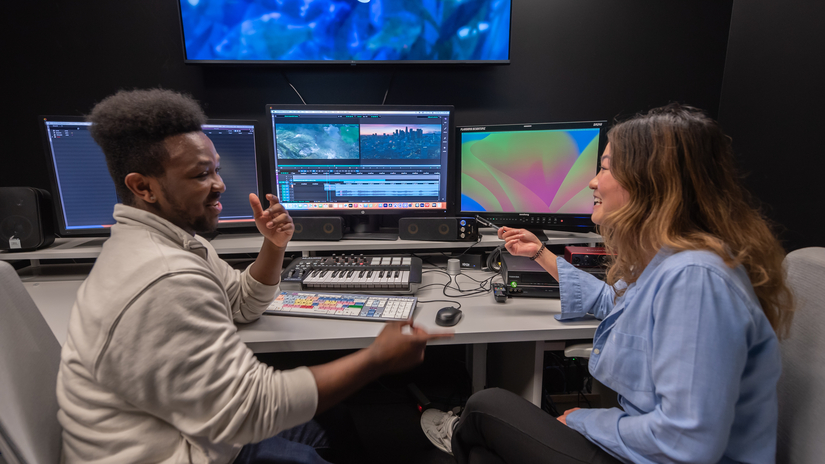German
Most sections require the use of a computer with Internet access for class resources and/or to complete assignments.
GERMAN 1 | Elementary German I5 unitsTransfer: UC, CSU Satisfies Global Citizenship The course is designed to give students the ability to understand, speak, read and write simple German. Primary goals are to introduce beginning students to basic structures of the German language by developing vocabulary and a command of idiomatic expressions; to familiarize students with sentence structure through written exercises and short compositions; to give students a basic foundation in German history and culture; and to interest students in traveling to German-speaking countries. |
|---|---|
GERMAN 2 | Elementary German II5 unitsTransfer: UC, CSU Cal-GETC Area 3B (Humanities) Satisfies Global Citizenship
This course is a continuation of German 1 with additional stress on conversation, reading, and essential grammatical elements. Aspects of German culture and history are covered as well. *The advisory for this course is comparable to two years of high school German. |
GERMAN 3 | Intermediate German I5 unitsTransfer: UC, CSU Cal-GETC Area 3B (Humanities) Satisfies Global Citizenship
This course reviews German grammar, emphasizing idiomatic construction and expressions. Discussions and interpretations are based on selected readings from German literature and a variety of cultural topics. This course is taught in German except in cases of linguistic difficulty as determined by the professor. *The advisory for this course is comparable to three years of high school German. |
GERMAN 4 | Intermediate German II5 unitsTransfer: UC, CSU Cal-GETC Area 3B (Humanities) Satisfies Global Citizenship
This course stresses the finer grammatical points, idioms, and vocabulary used every day and in literature. The course is highlighted by intensive and extensive reading and discussion and interpretations of more advanced German works on literature, philosophy, and culture. This course is taught in German except in cases of linguistic difficulty as determined by the professor. *The prerequisite for this course is comparable to four years of high school German. |
GERMAN 8 | Conversational German2 unitsTransfer: UC, CSU
This course provides an opportunity to acquire intermediate fluency in spoken German with emphasis on natural, colloquial usage. New vocabulary and idiomatic phrases will be emphasized, and the students will hold conversations in German during each class. This course is taught in German except in cases of linguistic difficulty as determined by the professor. Applied and service-learning field experience within a public agency, educational institution, and citizen volunteer groups is a requirement of this class. |
GERMAN 31A | Practical German3 unitsTransfer: CSU This course is designed for students with no previous knowledge of German. It develops basic conversation skills in the present tense, emphasizing the use of setup phrases, idiomatic expressions, correct pronunciation, development of useful vocabulary and the ability to communicate at a practical and basic level. This course is taught in German except in cases of linguistic difficulty as determined by the professor. |
GERMAN 99 | Applied Learning in German1 unitTransfer: CSU
This course — taken in tandem with another course in the discipline — enables a student to apply course content in a meaningful and relevant way to a particular activity. In this hands-on course, students engage in applied learning through unpaid experiential activities organized by the student (in conjunction with SMC’s applied/service learning center) and approved by the instructor. Students will develop a customized reading list relevant to their particular activity, complete a minimum of 15 hours of volunteer work with that activity, and submit academically-sound written reports regarding the activity. By applying course material to their experience, students develop a deeper understanding of the discipline. |




